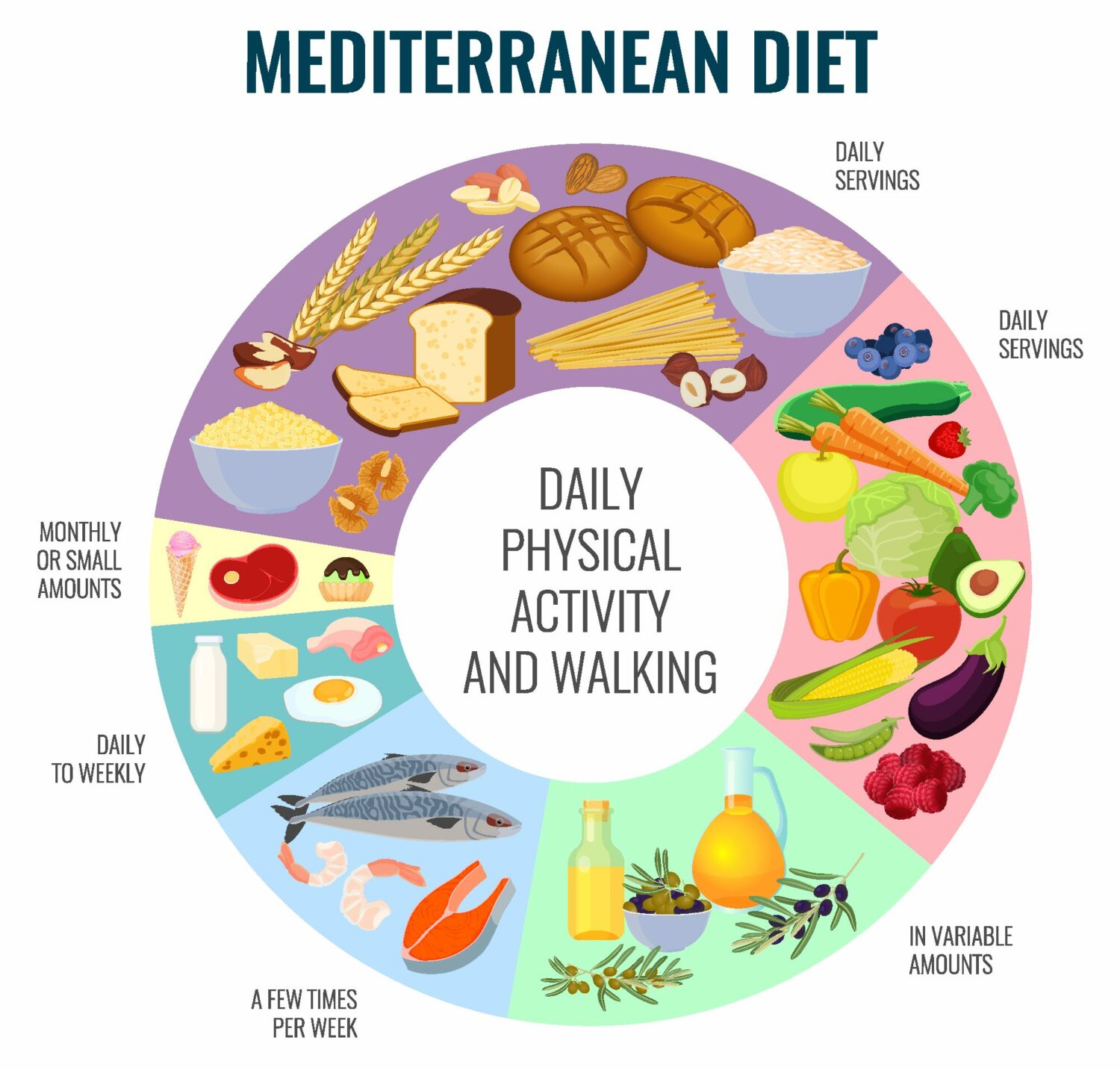The Mediterranean Diet: A Heart-Healthy Lifestyle Choice
If you’re looking to adopt a diet that supports cardiovascular health, the Mediterranean diet may be the perfect choice for you. According to Dr. Michael Odle, Chief of Cardiology at Conway Medical Center, “The Mediterranean diet, where you get your protein from fish and lean meats and you have a lot of olive oil, is really good for your vascular health.”
Similar to the DASH diet, which Dr. Odle also recommends for heart-health and lowering blood pressure, the Mediterranean diet emphasizes a plant-based eating pattern and healthy fats. However, it goes beyond just supporting healthy blood pressure; new studies have shown that this dietary approach may also reduce the risk of Alzheimer’s disease and provide numerous brain benefits.
What Foods Does the Mediterranean Diet Consist Of?
The Mediterranean diet focuses on consuming more vegetables, fruits, whole grains, extra virgin olive oil, beans, lentils, nuts, fish, cheese, and yogurt. It limits meat consumption, especially red meat, and discourages sugary drinks, sweets, and butter. For specific, personalized dietary recommendations, talk to your primary care provider.
To adopt this heart-healthy style of eating, consider the following general serving recommendations for an individual following a 2,000 calorie per day diet:
- Vegetables: Aim for at least 3-4 servings of vegetables daily (e.g., 1 cup of raw spinach in a smoothie, 1 cup of baby carrots with hummus, ½ cup of cooked broccoli on the side).
- Fruits: Enjoy 3 servings of fruit per day (e.g., 1 medium apple, 1 cup of chopped peaches or berries).
- Whole grains: Aim for 3-6 daily servings of complex carbohydrates (e.g., cereal, bread, pasta, quinoa, farro, or whole-grain couscous).
- Starchy vegetables: Include up to 4 servings of starchy vegetables like sweet potatoes, corn, squash, and white potatoes.

- Extra virgin olive oil: Incorporate 1-4 servings of extra virgin olive oil (EVOO) per day instead of other oils and animal fats.
- Nuts and seeds: Enjoy 3-4 servings of nuts per week (¼ cup of unsalted cashews, ¼ cup of crushed walnuts on a salad, or 2 tablespoons of peanut butter).
- Legumes: Aim for 3 servings of beans and lentils per week (e.g., ½ cup of chickpeas or black beans in a salad, a batch of white bean chili).
- Seafood: Consume 3 servings of fish per week (3-4 ounces per serving) to get your protein and heart-healthy omega-3s.
Moderate your intake of poultry (1 serving per day), eggs (1 egg yolk or fewer per day), and dairy (1 serving of low-fat options per day), and limit red meat, alcohol, refined grains, saturated fats, sugar, and processed foods.
By following the Mediterranean diet, you can promote heart health, support healthy cholesterol levels, and potentially reduce your risk of chronic diseases. This sustainable and delicious approach to eating prioritizes whole, plant-based foods, healthy fats, and moderation, making it an excellent choice for a lifelong, heart-friendly lifestyle.
CMC’s Cardiac Care: Innovative Treatment and Compassionate Care
Interventional cardiology plays a vital role in the management of cardiovascular diseases. Its minimally invasive nature, combined with the continuous advancements in technology, allows our patients to receive effective treatments with less disruption to their lives. If you or a loved one are facing heart-related issues, consult with one of our cardiologists at CMC Cardiac Care to explore the possibilities of interventional cardiology as a treatment option. Your heart health is important, and Conway Medical Center offers innovative solutions to improve it.
Need a cardiac expert? Meet our providers.




